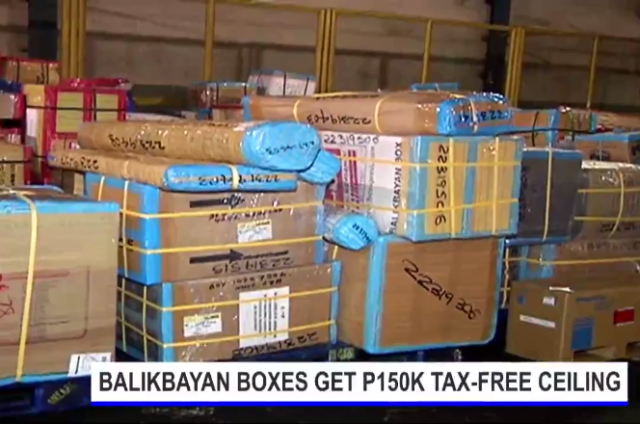
MANILA — Online relationships can be costly, if you fall into this trap that the Bureau of Customs’ new chief has warned against. The BOC at the weekend cautioned Filipino and foreign netizens against an online scam that lures victims with fake love and with promises to lavish them gifts – for which victims are made to send money to pay for Customs “fees” to secure release of the boxes.
Customs Commissioner Isidro Lapeña issued the warning after receiving reports of increasing incidents of the internet scam, citing data from the bureau’s help desk, BOC-CARES.
From January to September 2017, the help desk had received a total of 1,263 reports and inquiries on various online scams. Of the total number, 412 reports were made via phone calls, 159 via email, and 692 via social media.
The numbers, however, reflect both verified scam incidents and those that were merely reported but remained unverified because the caller or the email sender did not provide further details.
“If things are too good to be true, get out, that’s a trap,” he said in a statement.
Records showed that some of the names often used by the scammers are Danica Mae Chavez, James Henry, John Deck, George, Ben Anthony, Jojit Padilla, Luzviminda, Michael Wilson, Lea Gomez, Edward, Jenalyn, Karren, and Rowena.
Also, the common names used as couriers are SpeedEx Cargo, Speed Cargo, Global Express Cargo, Skyline Delivery Express, Express Cargo, Blue Express, Airtrack Cargo, United Global, Alpha Blink, Sky Express, Quick Cargo, Oceanic Delivery, ABC Cargo, Unifed, Link Up Freight, ECC Cargo, ACC Cargo, and Union Cargo.
Accredited Department of Trade and Industry (DTI) de-consolidators’ list shows no record of the couriers commonly used by the scammers.
The Customs chief said the agency recently received a complaint from a scammed resident of Pangasinan by an internet sweetheart who befriended and promised her a package containing signature bags and gadgets.
The victim was duped to pay P30,000 to a certain Jenalyn Miranda for the release of the package said to be held by Customs. However, after paying Miranda via money transfer, the suspects asked for an additional P80,000 for the release of the package.
According to the Enforcement and Security Service, online scams mostly make use of online dating sites, social media sites like Facebook and Twitter, or through phone calls, text messages, and emails.
The scammer often preys on victims by befriending them online and promising to send them a package containing gifts along with a huge sum of money. Bogus receipts and tracking numbers of packages are also sent to the unsuspecting victims.
Others are victimized via text messages or phone calls claiming they have a package held by Customs, often citing the BOC in Cebu, and the victim has to send money to get the package.
“They would usually use the name of the bureau and pose as BOC employees who are asking money to shoulder the duties and taxes in exchange for the release of the package,” Lapeña said.
The victims are often asked to deposit money through money transfer service or bank accounts in Cebuana, Western Union, or BDO.
The BOC chief pointed out, however, that the bureau collects customs duties and taxes through accredited agent banks (AAB) and not through personal bank accounts or other money transfer services.
“If in case a stranger texted or chatted you about an unclaimed package held by BOC, or [claimed] there is money in the package, you can double-check the existence of the package by reaching the BOC Helpdesk at 705-6000 or by sending us a message at our Facebook page Bureau of Customs PH,” he added.
Likewise, online scam victims are advised to report the incidents to the cybercrime divisions of the Philippine National Police (PNP) or National Bureau of Investigation (NBI).









